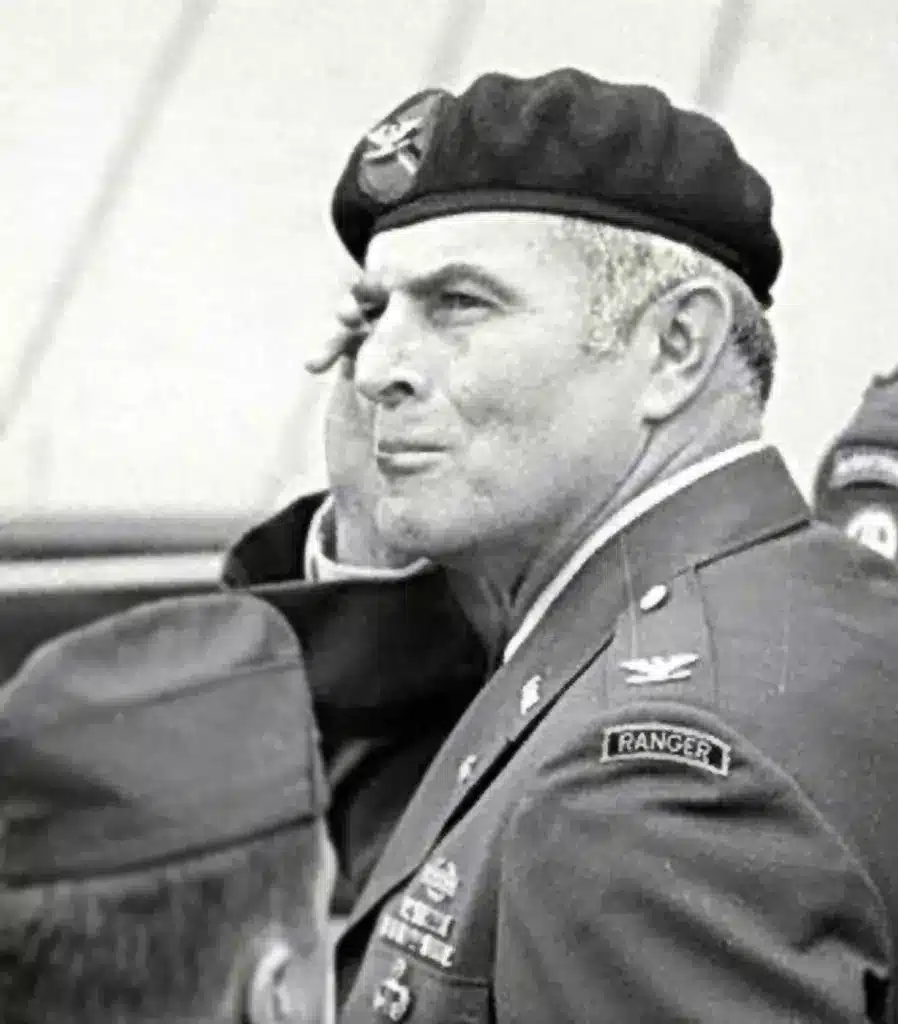Col. Charles A. Beckwith, a figure often compared to the proud and solitary American eagles he collected, held a reputation for his single-minded determination. This quality earned him honor in operations such as the 1965 Delta Force rescue of Green Berets at Plei Me during the Vietnam War. However, Beckwith’s most well-known role is in Operation Eagle Claw, the failed 1980 rescue of 52 U.S. embassy hostages in Iran. Despite this setback, Beckwith’s military career was marked by triumphs, innovations, and the creation of one of the most elite military units in the world.
Early Military Career
After graduating from the University of Georgia, Charles Beckwith chose to serve his country in the Army instead of playing football for the Green Bay Packers. In 1958, he volunteered for Special Forces duty and by 1959, he was already advising the Royal Laotian Army as part of the “Hotfoot” mission to Laos.
Beckwith’s Transformative Experience with the British SAS
In 1962-1963, Beckwith served as an exchange officer with the British 22nd Special Air Services (SAS) Regiment. This assignment had a profound impact on his military career, as he learned valuable lessons about organization, personnel selection and assessment, and realistic training. These experiences would later become the foundation for the creation of Delta Force, the U.S. Army’s counter-terrorist unit.
Project Delta and Vietnam War
Beckwith applied his experiences with the British SAS to create Project Delta, a Special Forces counterintelligence detachment, upon his return from Vietnam. He developed a rigorous selection process to find the right candidates and assumed command of its operation in South Vietnam. Beckwith’s time in Vietnam was marked by multiple near-death experiences, including taking a 50-caliber bullet to his abdomen and surviving a severe case of Leptospirosis. Despite these obstacles, he continued to serve with distinction throughout the Vietnam War.
Creation of Delta Force
On November 19, 1977, Beckwith co-created Delta Force to address the increasing threat of global terrorism. He modeled the elite unit on the British SAS, focusing on anti-terror and hostage recovery operations. While Delta Force’s attempted rescue at the American embassy in Tehran met with an aviation mishap, it was Beckwith’s leadership and recommendations following the mission that led to the creation of the Special Operations Aviation Regiment (SOAR) and Joint Special Operations Command (JSOC), two units that are key to Delta Force’s current legacy of wild success across many battlefields since then.
Legacy and Retirement
After a distinguished career marked by innovation and resilience, Beckwith retired in 1981. He authored a memoir detailing his experiences in creating and leading Delta Force. Col. Charles “Chargin’ Charlie” Beckwith’s legacy lives on in the elite unit he founded, which continues to play a crucial role in combating terrorism and securing the safety of the United States and its allies.






